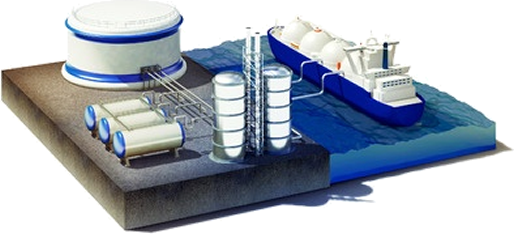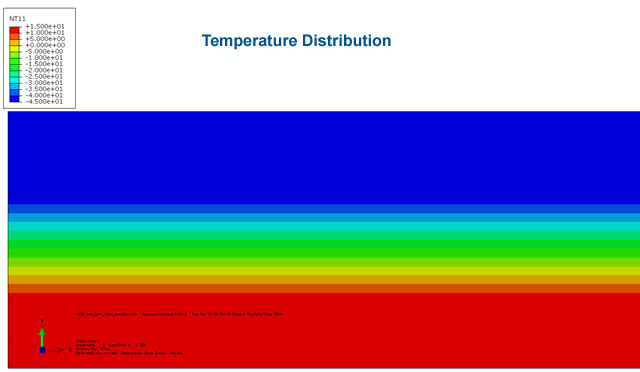Refrigerated Storage Tanks – Managing Operational Integrity

Refrigerated Liquefied Storage Tanks have been used for over 60 years in the industry. A significant number of these tanks store liquefied Propane and Butane, Ethylene and LNG and Ammonia. The stored fluids are at atmospheric pressures with temperatures which range from -45 F to -270
Failures of refrigerated tanks have been quite infrequent over the past 50 years. However, in each of these incidents there was catastrophic damage to the tank and its environment. In view of this history, Industry Standards and Operating & Maintenance practices place a rigorous emphasis in managing tank safety and integrity.
Background
At a major Refrigerated Storage Tank Terminal, the Operators were confronted with a need to remove a large dome roofed LPG tank from service to internally inspect the bottom plates for structural integrity. The concern arose from the discovery of “cold zones” (icing up) at localized areas in the tank foundation – which could cause “heave-up” and rupture the tank bottom fillet welds. Temperature readings below zero degrees centigrade, from one of the heating coils in the tank bottom, pointed to possible freeze-up of the foundation. Prior to justifying an “emergency entry” for inspection of the tank bottom the Client requested Becht’s assistance to explore possible options and recommend alternatives to permit continued operation until plans could be implemented for safe removal of the tank from service.
Becht’s First-of-a-Kind Assessment
Our “first-of-a-kind” refrigerated storage tank bottom assessment used comprehensive analysis methods – supported by a body of knowledge – to develop a risk-based methodology for evaluating operating risks. There was full participation by the Client’s cross-functional team. The methodology required a thorough understanding of LPG tank design/operations and analysis of tank filling and emptying cycles, coupled with a review of its foundation design and heating coil system.
The risk-based methodology used Becht Engineering’s Risk Assessment Guidance which was developed specifically for the LPG Tank. This was supplemented with information from industry data sources on refrigerated tank failures. The team applied damage mechanisms, identified multiple failure modes and developed consequence scenarios for LPG tank operations. Probability of Failure (POF) estimates were validated (where needed) from site data and in-house analysis of temperature distribution in the foundation/insulation system (see image below).

Conclusions & Recommendations
The outcome of the risk-based decisions yielded a Condition Monitoring Program – permitting the tank to remain in service. Recommendations to implement this program were developed, including considerations for appropriate timing, if removal from service for inspection is warranted. It is envisioned that with the monitoring program in place there will be sufficient lead time for a planned tank outage (when needed) causing minimum disruptions to the storage inventory and tank operations.
For more information on what the Becht Engineering Reliability Group can do for you, please CLICK HERE or feel free to contact us by clicking the link below.




